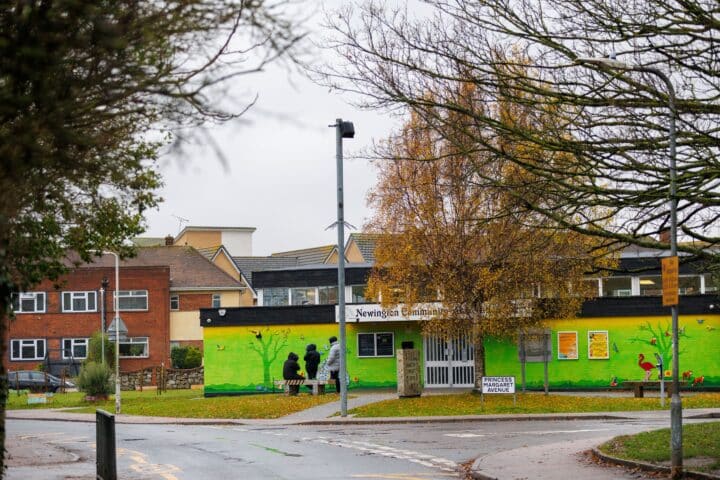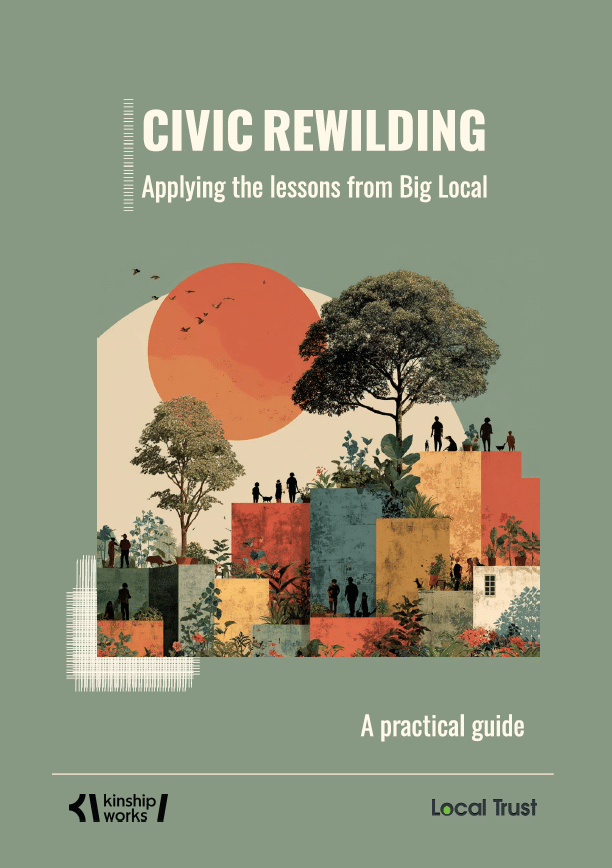Foresighting report
This paper looks at government reforms and what they may mean for Big Local areas.

Benefit reforms and Big Local
Summary by IVAR
This is a summary of a report about government reforms and what they may mean for Big Local areas. It focuses especially on the effects of public spending cuts and welfare reform, including poverty among people in work, reduced benefit entitlement and housing hardship. The report brings together government policy, national data and a modest series of conversations with Big Local reps.
Government reforms
The Government’s reforms of public spending, welfare and legal aid have created a complex picture of change across England. Amidst these reforms, northern urban areas and London appear to have fared worse than southern or rural areas.
In some Big Local areas community and voluntary organisations have responded with smart new ways to fund their work, organise it differently or join up with other organisations to make their resources go further. But the reality is that some organisations which currently help people most affected by the Government’s reforms may not survive.
The likely effect of reform on individuals is complex and hard to untangle because some people may be affected by more than one of the Government’s reforms e.g. a benefit being reduced as well as a service being cut. But it appears that those most at risk will be people claiming multiple benefits (e.g. Incapacity Benefit with Child Tax Credits and Housing Benefit) and they are likely to see their monthly income considerably reduced.
Areas affected
There are Big Local areas in six of the seven worst affected English local authority areas in the UK and 38 of the top 50 in the UK as a whole. This includes 27 in the North and seven in London.
Across former industrial local authorities in the North, benefit recipients are more likely to be in receipt of multiple benefits. The multiple reductions across welfare support will especially affect people who rely on a mix of disability benefits, child tax credits, housing and council tax benefits. This will also happen in London but to a lesser extent. However, due to the cost of renting in London the benefit cap is expected to have an impact as it sets a limit on total benefits, reducing housing benefit when the limit is reached. The ‘bedroom tax’ (called so in many policy papers but, to give it its full title, the Under-Occupation Penalty) may compound this effect on those renting from social landlords. Council tax benefit changes are also likely to affect people who will be expected to pay a minimum charge.
As part of our research, we compared the profiles of three Big Local areas to the anticipated effects of the Government’s reforms. We found that:
- Blackpool has high numbers of private renters combined with high levels of unemployment and high rates of disability benefits claims. In Big Local area Revoe this means individuals may find it hard to get by day-to-day.
- Knowsley has high numbers of renters from social landlords combined with high levels of unemployment but also high levels of disability benefit. In Big Local area Northwood this means the ‘bedroom tax’ may compound the effect of a reduced benefit income. Some people may find it harder to find the time to participate as a result.
- Newham has high numbers of residents likely to be hit by a combination of housing reforms, council tax benefit reforms and the benefit cap. In Custom House residents who work are also affected by low-paid temporary employment and zero-hours contracts and are likely to be in receipt of benefits. The combination of these suggests uncertainty about income is a major concern in Custom House.
Big Local
Having looked at the reforms and where they are likely to hit overall, further investigation in our three case study areas suggested how residents are likely to respond at this stage in the programme.
- Government’s reforms, especially to welfare, are becoming visible in Big Local areas; but it is likely they are being addressed by residents in different ways and to different degrees.
- Early indications are that welfare reform feels too big for most areas to tackle; more probably residents will focus on more specific issues that they feel they can do something about.
- Our conversations tell us that local discussions about welfare reform and its effects, including fuel poverty, can be difficult for residents for reasons of shame and stigma, as well as attitudes nationally that distinguish between the ‘deserving’ and ‘undeserving’ poor.
- It is important that Big Local areas’ activities are resident-led and that residents can proceed at their own pace. But Big Local reps need to have a thorough understanding of the population so that they can be aware of what is not yet being addressed and how this might be tackled over the medium-to long-term.
- Sharing experience across Big Local areas as residents begin to address these issues will be important.
Getting people involved and keeping them involved in difficult times
- The challenge of getting people involved, keeping them involved, and widening the numbers involved is sharpened where welfare and other reforms are biting.
- People’s capacity to get involved may be affected by personal hardship; difficult times may have knocked their confidence; or there may be real or perceived prejudices against people who are out of work or going through other kinds of difficulty.
- Big Local areas often set up formal steering groups to help them organise their work. What we have learned is that people going through difficult times may need looser, more flexible ways to get involved.
- We are beginning to see some early indications that a focus on the local economy and employment may draw in residents experiencing hardship and make a contribution to tackling these issues.



